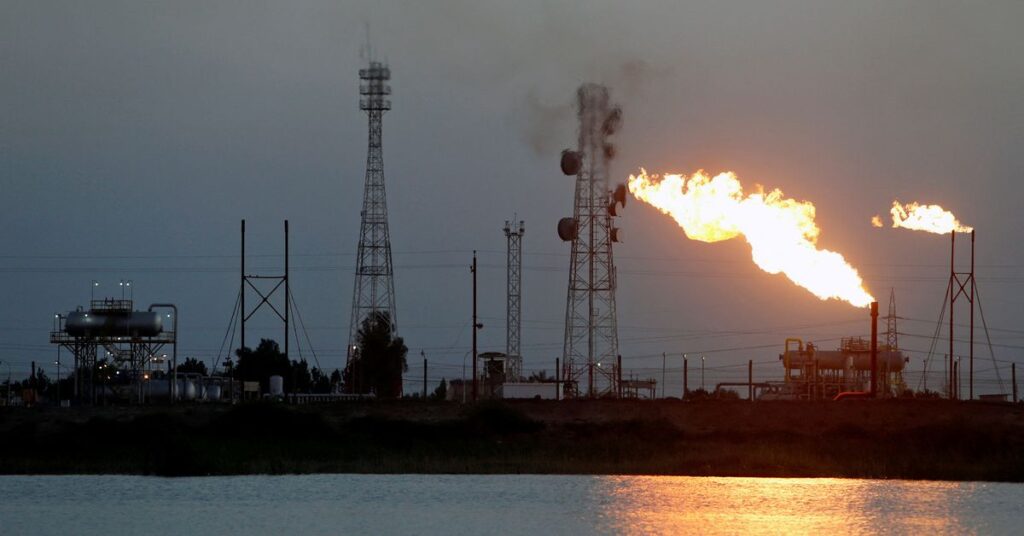April 5 (Reuters) – Oil prices settled largely unchanged on Wednesday, despite greater-than-expected draws in U.S. crude and fuel stockpiles, as the market weighed worsening economic prospects against expectations of U.S. crude inventory declines and plans by OPEC+ producers to reduce output.
Brent crude futures settled up 5 cents, or 0.1%, at $84.99 a barrel, while West Texas Intermediate crude ended 10 cents, or 0.1%, lower at $80.61 a barrel.
U.S. crude inventories fell 3.7 million barrels last week, about 1.5 million barrels more than forecast, government data showed. Gasoline and distillate stocks also fell more than expected, drawing down by 4.1 million barrels and 3.6 million barrels, respectively.
“Maybe following the strong price rally this week, investors are a bit cautious on jumping on a strong report,” said UBS analyst Giovanni Staunovo.
Prices jumped by more than 6% on Monday after the Organization of the Petroleum Exporting Countries and allies including Russia, collectively known as OPEC+, pledged voluntary production cuts.
“The decision by OPEC+ to voluntarily cut crude supplies from May onwards has come as a surprise to many, considering that the global crude balance was already expected to become increasingly tight over the summer months, something that will certainly help keep crude prices supported,” Kpler crude analyst Johannes Rauball said.
Data showing cooling economic conditions weighed against higher demand for crude and fuel.
U.S. job openings in February dropped to the lowest level in nearly two years, suggesting that the labor market was cooling.
“(The data) could be the first signs of weakness in the U.S. labor market and that is huge. Without it, (the U.S. Federal Reserve) will find it very hard to make the argument that it is pausing the tightening cycle,” said Craig Erlam, senior markets analyst at OANDA.
Traders will be looking for cues on broader economic trends from U.S. non-farm payrolls data due this week, as weak economic data from the U.S. and China raise demand fears.
“The present raises concerns about healthy economic expansion as Chinese, euro zone and U.S. manufacturing activity slowed last month,” said Tamas Varga of oil broker PVM.
Record Russian diesel flows to the Middle East in March and the sluggish performance of middle distillates contracts have “acted as a brake on any attempt to push crude oil prices meaningfully higher,” Varga said.
Additional reporting Rowena Edwards in London, Sudarshan Varadhan in Singapore, Laila Kearney in New York and Rowena Edwards in London; Editing by Marguerita Choy and Josie Kao
: .


